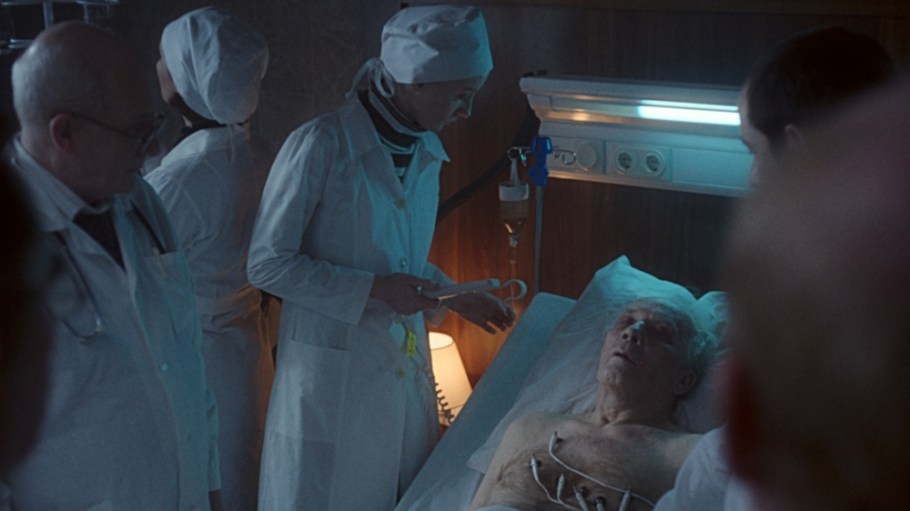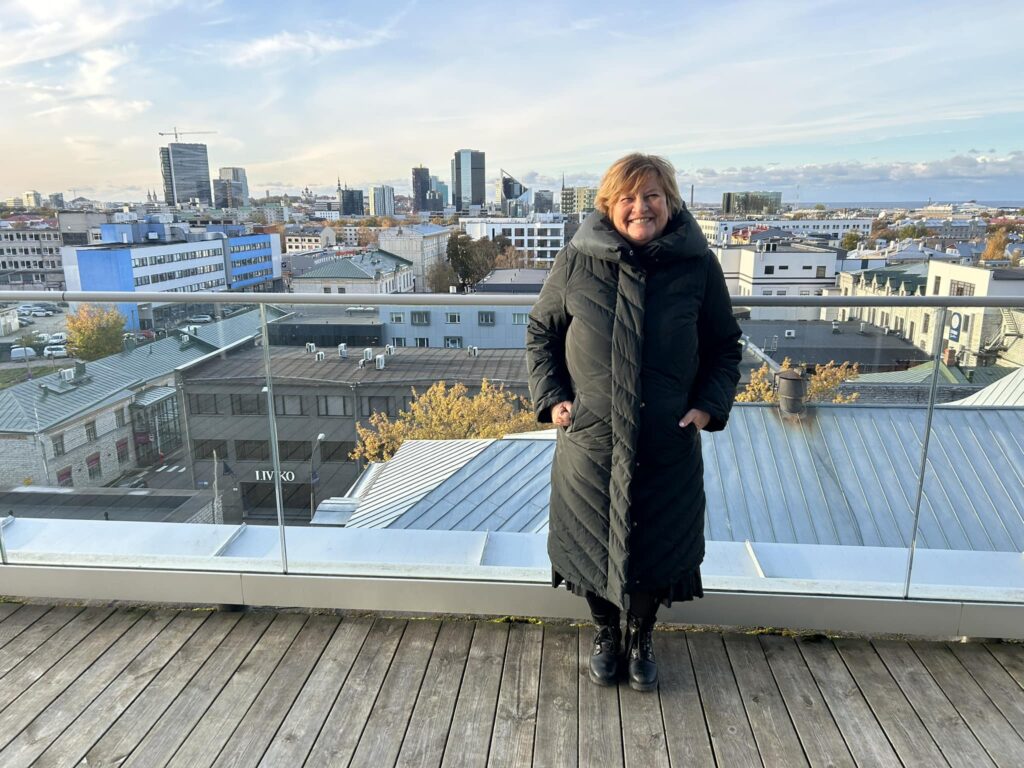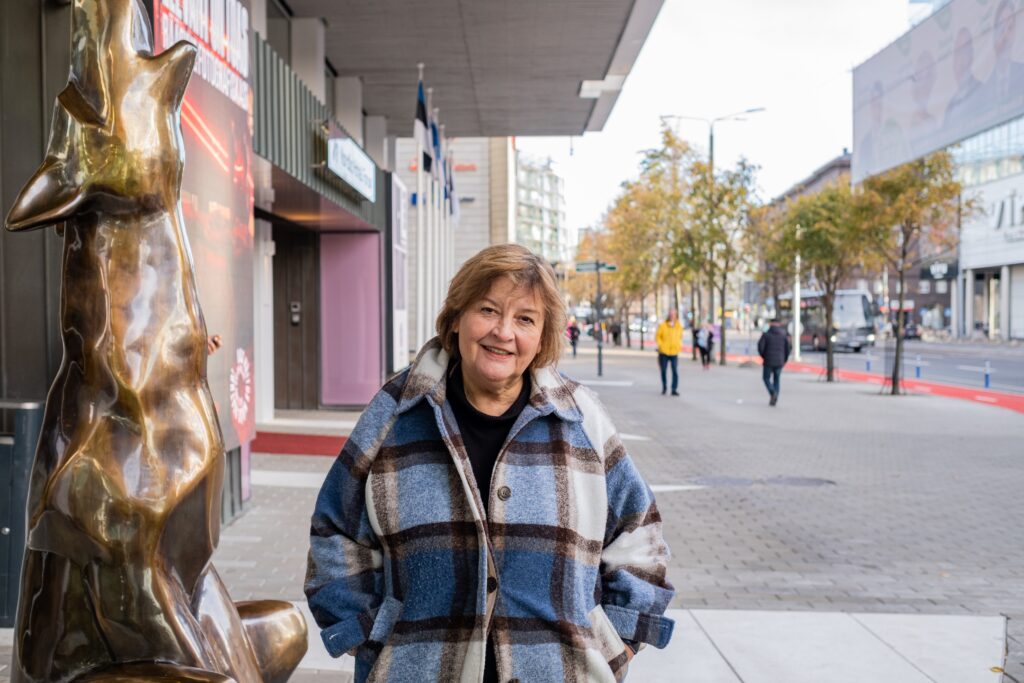Tiina Lokk, the founder and the director of Tallinn Black Nights Film Festival, said in an interview with Estonian World that hopefully, the festival will make people more tolerant and the audience will learn new possibilities to look at universal problems from different angles and cultural perspectives.
The 27th Tallinn Black Nights Film Festival (or as it is known by its Estonian acronym, PÖFF) runs from 3 to 19 November this year and will screen 200-300 films from 73 countries. This includes full-length titles, shorts and animations.
Margit Adorf, an acknowledged Estonian film critic and journalist, managed to have an insightful chat with Tiina Lokk, the founder and director of PÖFF.
The world is becoming more and more turbulent, and the crises are also having a strong impact on culture. How does it affect the festival’s film selection?
At our festival, one clear example is the absence of films funded by the Russian Federation. However, this year we have two documentaries by Russian authors, made by directors who no longer live in Russia. One Georgian fiction film from the festival’s main competition programme, “Patient #1”, has some Russian collaborators, but the film’s essence is 100% anti-Russian. Also, the actors in the film have all very clearly expressed their position against Russia’s aggression in Ukraine.

Further, the programme includes movies from the Belarusian resistance movement. PÖFF’s position is that we try to engage cinema from the countries that are under dictatorship or authoritarian regimes. We give a chance to those oppositional voices that tell either their personal story, or the story of the country. If we take away the voices of opposition, there would be no hope for any kind of struggle in these countries.
However, PÖFF’s selection criterion is that any story told by the opposition must be very credible. The message must be clear, and the film must be artistically top-notch.
PÖFF is among the world’s 15 A-class festivals. What makes PÖFF different from these festivals, what’s the identity?
I’m constantly analysing where we belong. We’re on the same page with Karlovy Vary, Locarno, Warsaw and Tokyo. In contrast to other A-class festivals, we have a very small local film market behind us. It has been harder to build up the festival and prove that our world-premiering films can find distributors here.

Simultaneously, PÖFF is a trendsetting festival. In the First Feature Competition, it’s a talent search and the selection is more varied, but all the five competition programmes are curated with great care, and the potential films are being treated equally. It doesn’t matter if one auteur’s film has won an award at with some previous film. If the new film is weak, it won’t make it through the festival’s pre-selection.
We have no country-wise quotas. For example, no Estonian film will make it into the competition if it is weaker than the other international competitors. However, we have a strong Baltic Film Competition programme and some special programmes that showcase Estonian cinema.
We are perceived as a very strong auteur film festival, even if we don’t have the money to bring A-list stars here. All our guests are staying in the same hotels and arriving on regular flights. We want to keep a warm and intimate atmosphere, where we know our film guests personally, and they feel cared.

This year’s focus is Serbia and the South-Eastern European Neighbours. How would you briefly describe this?
I was particularly interested in the retrospective on the former Yugoslavia, Black Wave. It’s a part of Yugoslav New Wave cinema from the 1960s-1970s, when Yugoslav cinema was one of the strongest and most fascinating in Europe. It’s interesting to see the then and now moment of this region’s cinema.
These kinds of focuses allow us to go deep into what is happening in the region, not only on a cinematographic level, but also to see through film the way of life, the people, the street scene, the history and the concept of history. One thing is to go on a holiday to Croatia, but another thing is to see how people live there. As a vacation tourist, one does not fully understand it, but through the films, you can see people’s real lives.
What are the current cinema trends?
Fiction films do not catch up with contemporary trends as fast as documentaries, but numerous ubiquitous problems that are currently tackled by international press, have already made their way into film.
I hope our festival will make people more tolerant, and the audience will learn new possibilities to look at universal problems from different angles and cultural perspectives.

Can Tiina Lokk imagine her life without PÖFF, which has become her lifetime achievement?
I’ll retire when my team tells me that I’m getting old. When I can’t keep up with them. For now, I’m in no danger of that! However, I have an agreement with certain people that if I’ll once turn into an old scumbag, they would tell me honestly. And then I’ll leave immediately!
How do you keep a festival alive for decades?
The danger arises when the whole festival team is ageing at the same time – people get tired. I’ve been trying to have a lot of young people in the team. The team must be in a natural state of movement, learning, and developing. The festival must never be complete and finished. If it does, something has gone wrong. I am making sure that fresh ideas are added constantly to our festival and that the team don’t fall into a rut. This is crucial. We also have to trust the young people who are coming in, and their spirit must not be curtailed.
My team is fierce and I’m not afraid. I’ve already given away a lot of my positions and I’m not looking for one certain person to take things over. There are so many people who are currently on the cultural landscape due to PÖFF. If the festival is important to people, then there will be someone who will take it over after me. And if the festival is not important to anyone, then that’s our fate. Simple as that.
Thank you, Tiina Lokk, and enjoy the festival!

